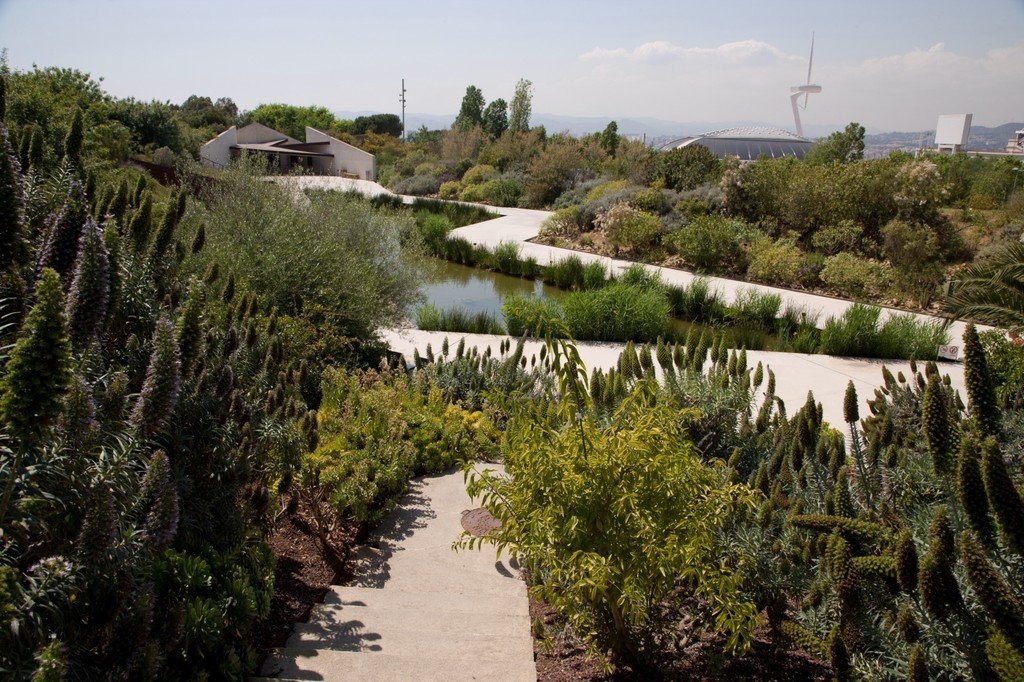Architecture
ARC 7080 Technology Thesis Report:
Research Strategies and Resources

Welcome, About Me
- I have a BFA in Art & Design, after working in community arts/education for a decade I did an MLIS and joined the UML team to support the faculty of architecture.
- My favourite part of my job is helping students with their research and learning about their projects!
- When I'm not at UML you'll probably find me hiking/cycling, making art, or supporting library & information services to prisoners

Today we will look at:
My goal today is to introduce you to potentially new library and internet search tips and for you to feel more confident in library research and what resources are available to you.
-
Thinking about research
-
Places to find resources in the library collection (books, ebooks, theses, conference papers, scholarly journals/articles, and images/video), web resources
-
keyword search tips
-
Library Services during the pandemic
-
Resources Citation in APA Style
Research in design practices & research-creation:
Drawing Connections Between the Studio, Theory, & Library/Web Research
Conversation
Revision
Exploration
Authority
Thoughtful
Experiential
How are the creative
and research processes intertwined and informed by one another in your discipline? For you personally?
Research: Where to Start?
-
Research is non-linear and iterative, get curious and inspired by exploring your topic broadly!
You may want to learn more about:
- a specific project, its surrounding area
- the designer(s), their theories, ideas, goals
- how other people live with & interact with the landscape in question
- the broader cultural, historical context
- research frameworks and methodologies
-
Begin by forming a research question (this may evolve/refine)
-
Brainstorm keywords based on what you know & what Qs you have
-
What do you know about the subject so far?
- designer or project name, concept/idea
- style, approach, theory, methods
- Add new keywords and search strategies as you find information
-
What do you know about the subject so far?
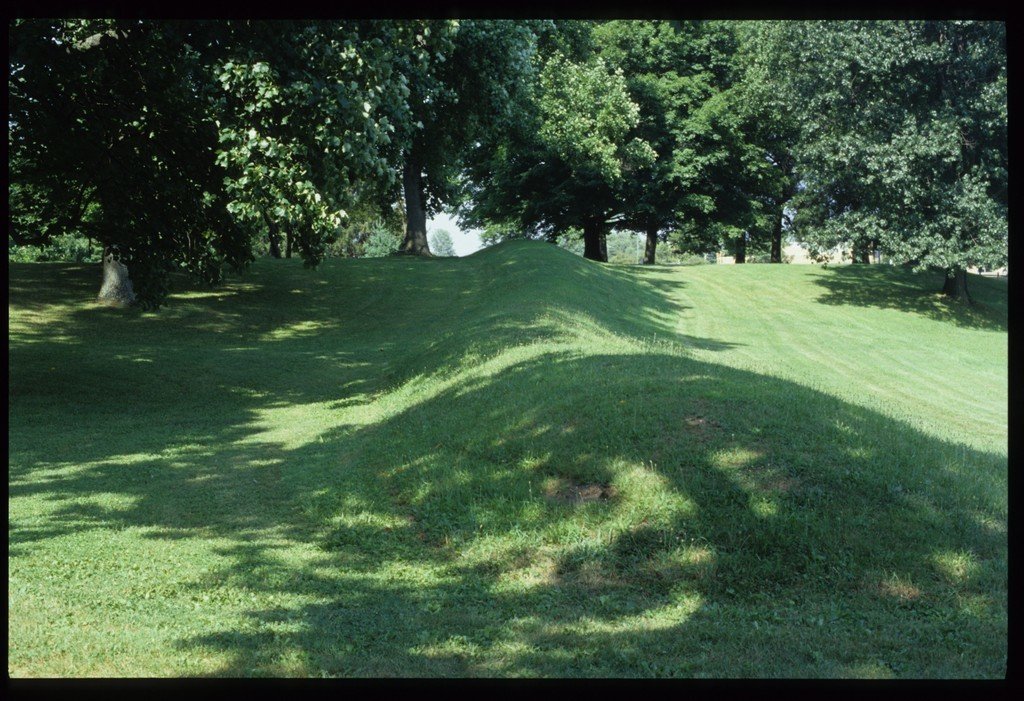
Internet vs Library
- Not all information is available on the internet, most scholarly info is not or requires payment
- Highly disorganized, does not bring up the most relevant or all results (ads, sponsored pages, algorithms)
- No quality control - anyone can produce content
- Can still find credible information
- Some high-quality open access content (databases, image/video, and journals)
- Great for portfolios/websites of designers and blogs or organizations dedicated to architecture.
- Information is cataloged and can be more accurately searched/retrieved
- Access to information that exists behind paywalls (journals, articles, databases)
- Access to primary resources
- Scholarly and peer-reviewed content
- Interlibrary loan - document delivery
- Support from librarians with subject expertise
UM Library Search
- Very broad search engine - you may receive results from all subject areas (more results if you're signed in)
- Where you can search all physical resources (books)
- Content from some, not all, of the library's databases including resources like:
- ebooks
- peer-reviewed journal articles, conference papers
- images (more results if you're signed into your account)
- Can apply filters to narrow results
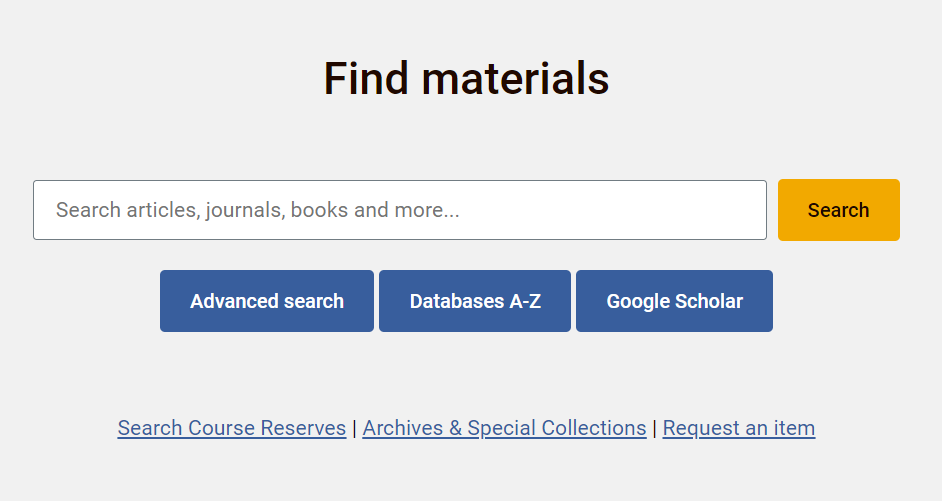
For more sources in library search check:
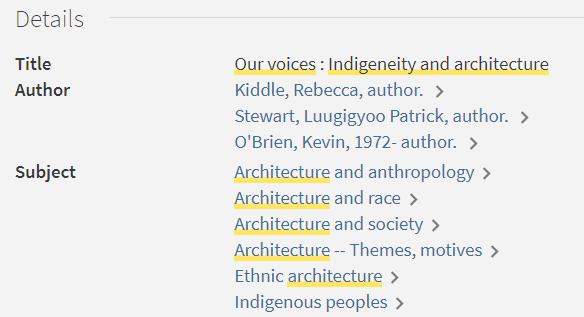
Virtual Browse (books)
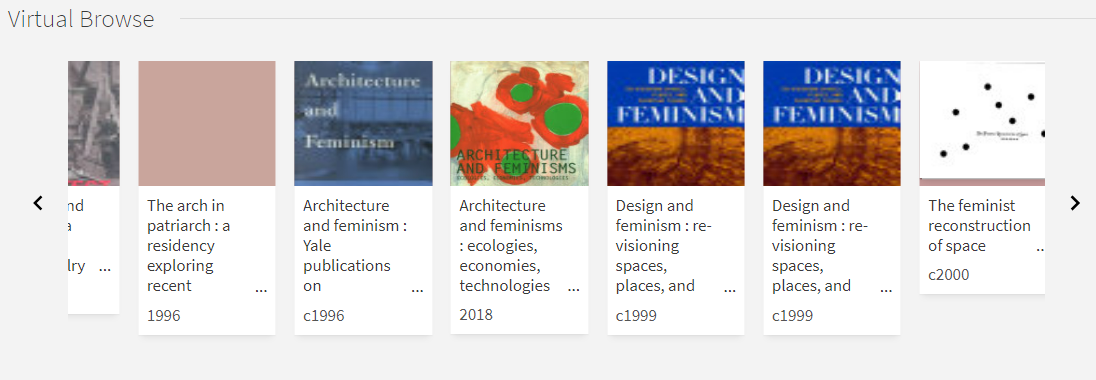
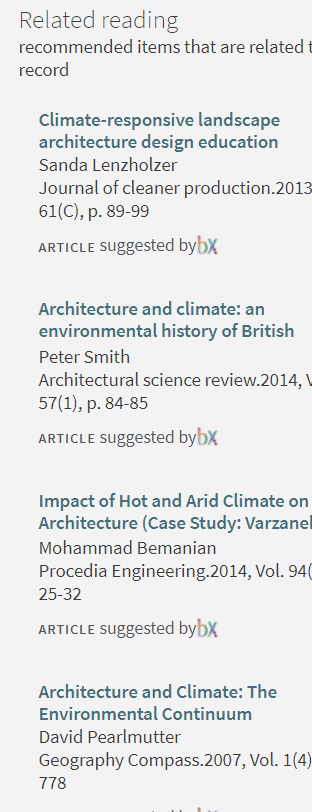
Related Reading (articles)
Subject Headings (all content)
- The bibliography/citations of a work you're looking at can lead you to additional related resources, authors to investigate, or inspiration for more keywords.
For more sources in library search check:

"Citing this" and "cited in this" tool
Subject Guides
- For curated subject-specific research suggestions: databases, journals, citation resources, websites, and more
- Architecture Guide
- City Planning Guide
- Environmental Design Guide
- Civil Engineering Guide
- Browse Subject Guides for adjacent fields related to your research (ex. recommended journals/databases)
Journal Articles
- UM Library Search > limit Resource Type to articles and peer-reviewed
-
UM Library Search > limit Resource Type to journals
- when you select a journal, you can conduct a search within that specific journal
- Navigate to the Landscape Architecture Subject Guide> articles tab> for a listing or electronic and print journals, and indexes and databases that host journal articles
- Browzine: browse and download journal articles, set notifications for new articles
- Databases: The Avery Index to Architectural Periodicals
Conference papers/proceedings
- UM Library Search > limit Resource Type to conference proceedings
Theses /Dissertations
- UM Library Search > limit Resource Type to dissertation
- Navigate to the Architecture Subject Guide > Thesis tab for a listing of theses resources (mspace, databases)
Searching Images/video
-
Library Search - apply filter to limit resource type to images, video
- If you're signed in this pulls images from databases including Artstor
- All these results are copyrighted to use for educational purposes
-
Databases
- Go directly to image databases such as Artstor, Oxford Art Online, Art & Architecture E-portal, RIBBA Explore Architecture, and US Modernist to search
-
Open Access Image/video resources
- check Architecture guide - images tab for open access suggestions
-
Images in books, journals, and articles
- The publication should have at least 9 other images to fall within fair dealing guidelines for copying an image
- The library and/or UM Copyright Office can answer questions.
Searching Beyond
UM Libraries
- Google and Google Scholar
- Lean Library Browser Extension
- Document Delivery: Request resources from another institution, or recommend a purchase
- Websites/blogs/open access archives and databases: recommendations in Architecture Guide
-
Worldcat > search "architecture" or a specific subject
- if UML does not have, request document delivery
- The Internet Archive
Questions?
Citation Managers
Most citation management tools can help you to:
- Import citation information from databases and library catalogs
- Collect, organize, and annotate citations
-
Manage PDF articles
-
Generate bibliographies and format footnotes or endnotes in a variety of styles
| Platform | Pros | Cons |
|---|---|---|
| Zotero | -Can auto-detect item types to save in Z Standalone. -Unlimited # of private or public groups. -Can add additional features with third-party plug-in's -compatible with MS Word, LibreOffice, Google Docs |
-Very limited storage space w/free account if you want to store PDF's on Z server (Free account = 300 MB of Web storage) -Although relatively easy to use it still takes some time to learn the software |
| Mendeley | -Free account up to 2GB -Free searchable online library of papers & citations. -PDF reader with annotating and highlighting features. Free basic account covering personal server space up to 2 GB, 100 MB Shared Library, 5 private groups with up to 25 collaborators. Fee to upgrade storage space. -compatible with MS Word, LibreOffice |
-Some limitations for private group creation and participation for users with a free account -- Although relatively easy to use it still takes some time to learn the software. - not compatible with google docs |
| Endnote | -Can manage large-scale projects. -Activity feed of the group -HIghlighting & annotating tools for PDF's |
-cost, more difficult to learn |
Tutorials
- UML Mendeley Tutorial and Practice (1 hour 20 min)
- UML Endnote Basics Tutorial (1 hour)
- Zotero Tutorials (multiple resources under 30 min) Zotero screencast tutorials (1 hour)
The Faculty of Graduate Studies and the Library sometimes offer citation manager workshops
APA Citation Style
- Learn at the Libraries: Citing
- Architecture Subject Guide: Citing and Writing
- Full style manual available online!
- Purdue Online Writing Lab (OWL) has a great list of examples of how to cite using APA style, including annotated bibliographies
- Elements of Indigenous Style: A guide for writing by and about Indigenous Peoples
- Citation/reference Managers
Search Tips
Phrase your topic as a research question
- Break down your topic into keywords and brainstorm synonyms
- Try to articulate different ways of expressing a concept that you are searching
Keywords
- searching with more keywords = more specific and fewer results
- searching with fewer keywords = more broad and more results
Search Tips: More Results
Broadening Your Results
-
Using AND to separate two terms ensures that your results will include both those terms: landscape AND phenomenology
-
You can give the search more options by placing similar words in brackets, separated by OR: (design OR architecture) (green OR sustainable OR eco) (design OR architecture) ( Indigenize OR decolonize)
-
- These will cause results to all have at least one of those words in the title, description, and/or the text
- Wildcard: Add an asterisk (*) to the end of a word to get results that include the root word as well as any possible endings:
Architect* finds: Architect, Architects, Architecture, Architectural...
Christian* finds: Christian, Christians, Christianity...
Note: be careful where you place the *, for example, Christ* would also find: Christmas, Christo (an artist)
Search Tips: More Specific
Narrowing Your Results
- Place a phrase "in quotation marks" to search that exact phrase or order of words
- ex. "therapeutic architecture", "social justice", "Douglas Cardinal "
- Use NOT to exclude unrelated content
- union NOT soviet - for content about unions but not the Soviet Union
Learn at the Libraries: Advanced Search
Brainstorm some keywords you could use to start a search for this research question
Brainstorm some advanced search possibilities using:
"blank blank", (blank OR blank), AND, NOT, *
Biomimetic AND (system* OR technolog*) AND architect* AND impact
Biomimetic AND (system* OR technolog*) AND architect* AND sustainabl*
Architecture AND Biomimetic AND impact
“Biomimetic principles” AND architecture
Biomimetic AND architecture AND (green OR eco OR sustainable)
“Biomimetic technology” AND “architect* design” AND impact
“Biomimetic build*” AND architecture
Pandemic Library Services
- Online/digital services always available
- Print Books
- request to pick-up books from locker
- request a scan of a book
- Ebooks and Digitized books
- HathiTrust: temporary electronic versions of some print books.


Evaluating Sources
CRAAP Test
Currency - Is there a date the page was published or updated? How current are the cited sources? Are there broken links?
Relevancy - who is the intended audience?
Authority - is the author a recognized expert in this field?
Accuracy - supported with evidence (citations)? Peer-reviewed?
Purpose - to inform? teach? entertain? persuade? sell? Check the domain (eg: .com = commercial, .org = non-profit, .edu = educational...
What are your informed parameters and guidelines for determining authority within your discipline and practice?
Identifying Bias
Evaluating a Source for Bias
- Does the information appear to unfairly favour a group or perspective over others?
-
Is the information misrepresented?
-
Is there other important information missing?
-
Whose perspectives and experiences are included? Whose are excluded?
-
Who will benefit from the information as it is presented?
-
Will the information cause harm or disadvantage another?
In what ways have you examined your own worldview, assumptions, and biases through collaborative and reflective practices?
Questions?
- Check the Covid-19 Library Updates page for access current information
- Use the Ask Us chat
-
Contact Ashley for help with search strategies for your topic or assignment, advice on which databases to use, and citation questions
- email ashley.huot@umanitoba.ca or Book an appointment for a video chat
Writing, Citing, and Research Support
-
Faculty of Graduate Studies workshops
- workshops on citation managers, graduate writing & more
- Academic Learning Centre writing/citing workshops
- Faculty of Architecture Tutor: Amanda.Ross@umanitoba.ca
- Booking Form
